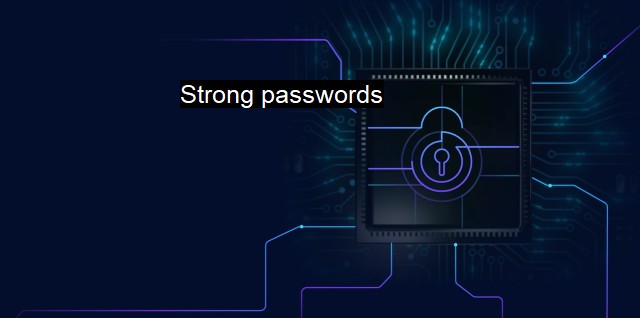What are Strong passwords?
Creating Strong Passwords for Cybersecurity: Elements and Guidelines
In the sphere of cybersecurity and antivirus systems, a strong password is imperative. The robustness of a password relates directly to how resistant it is to various forms of cyberattacks. With a stronger password, one can have some degree of insurance against identity theft, cyber-attacks and unauthorized access to sensitive personal or professional data.The significance of a strong password is magnified due to the increasing prevalence of cyber-attacks. Governments, corporations, and individuals around the world are grappling with these issues, which have become increasingly frequent and potentially detrimental. Hackers or malicious software often target weak, easy-to-guess passwords for gaining access to systems or accounts. Consequently, constructing a strong password is an effective bulwark against potential threats, ensuring a greater level of cybersecurity
So what exactly does a strong password mean? a strong password is a unique string of characters comprising an unguessable and complex combination. This includes a mix of lower-case letters, upper-case letters, numbers, symbols, punctuation marks, and non-alphabetic characters. The incorporation of such a varied range of elements makes it much more challenging for hackers who use brute force or dictionary-based attacks, therefore, boosting the fortitude of the defense.
Longer passwords tend to be stronger because each additional character multiplies the potential combinations to guess. This making it progressively harder for malicious agents to crack using brute force over a realistic timescale. A length of 12-16 characters is often regarded as robust, but the shift towards lengthier, 'passphrase'-type constructs with a sentence or string of unrelated words is becoming more prevalent, providing more robust security with increased memorability.
Besides length and complexity, unpredictability also strengthens a password's integrity. Therefore, real words or sequences related to accessible personal information should be avoided. This also involves staying away from commonly used passwords and simple patterns, both of which could be easily anticipated by hackers. each online account should have a distinct password. If multiple accounts shared a password and one was infiltrated, the others would be immediately jeopardized.
In addition to crafting strong passwords, utilizing a password manager tool can fortify the system's vulnerability. These programs can create, remember, and autofill complex passwords - a more sophisticated alternative to employing the same password or two across all accounts. They also deprive key-logging malware of useful input, aiding in defense against viruses.
Using multi-factor authentication (MFA) wherever possible can add an extra layer of defense alongside a strong password. MFA requires a user to provide two or more verifications to prove their identity before accessing the account - something they know (password), something they have (cellphone), and something they are (biometric data).
It is crucial to never write down passwords in easily accessible spaces or share them with unverified individuals or platforms, no matter how trustworthy they may seem. This practice, while seemingly harmless, is parallel to leaving one's house door open – an invitation for an intrusion.
As robust as a password may be, it alone is not the ultimate defense. Cyber threats are continually evolving and becoming more sophisticated, which mandates appropriate use of software tools such as antivirus and firewall applications, regularly updating software and OS, and staying vigilant against potential phishing attempts. A strong password is merely one aspect of a comprehensive, multi-layered cyber defense strategy.
a strong password, in the context of cybersecurity and antivirus solutions, can shield entities from a broad range of threats, including cyber-attacks and unauthorized data access. While ubiquitous usage of strong and unique passwords significantly elevates cybersecurity, a well-rounded strategy that incorporates other vulnerabilities and relevant defense mechanisms cannot be overlooked.

Strong passwords FAQs
What is a strong password?
A strong password is a combination of uppercase and lowercase letters, numbers, and special characters that are difficult to guess.Why do I need a strong password?
You need a strong password to ensure that your personal information is protected from cybercriminals who want to steal or misuse it.How often should I change my password?
It is recommended that you change your password every 90 days. This helps to ensure that your accounts remain secure and reduces the risk of your information being compromised.Is it safe to use the same password for multiple accounts?
No, it is not safe to use the same password for multiple accounts. If one account is compromised, then all of your accounts that use the same password are at risk. It is recommended to use a unique password for each account.| | A | | | B | | | C | | | D | | | E | | | F | | | G | | | H | | | I | | | J | | | K | | | L | | | M | |
| | N | | | O | | | P | | | Q | | | R | | | S | | | T | | | U | | | V | | | W | | | X | | | Y | | | Z | |
| | 1 | | | 2 | | | 3 | | | 4 | | | 7 | | | 8 | | |||||||